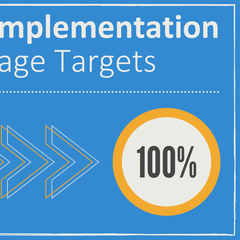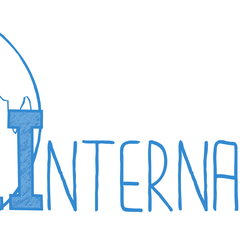
Press Release: Human Rights Watch Calls Out Unaffordable Insulin as Human Rights Crisis
12 Apr 2022, 5:21 a.m. in #insulin4all USA, News & Statements by T1International
The soaring cost of insulin and regulatory failures have created a human rights crisis, according to a new report by Human Rights Watch.
The report published on April 12 examines the factors that allow drug manufacturers and pharmacies to sell life-saving insulin at unaffordable prices. As T1International campaigns have highlighted, these high prices have led to widespread insulin rationing and the tragic deaths of people living with diabetes, as well as poor health outcomes more generally.
The Human Rights Watch report powerfully illustrates the human impact of sky-high insulin prices through the testimony of 18 insulin-dependent people living with diabetes in the United States.
Referring to the cost of a vial of insulin, Marcus LaCour told the report authors: “Imagine you don’t have someone to loan you $250, and you die alone in your living room. But nobody is doing anything about it...”
Several of the stories featured in the report are from people who advocate with T1International. T1International collaborated closely with Human Rights Watch on the extensive report, making connections to patient advocates and providing some of the research and data.
Human Rights Watch research shows the astronomical increase in insulin prices over the last 30 years. The report says “adjusted for inflation, Eli Lilly’s list price for Humalog — the price at which they sell the drug — increased by 680 percent since it first began selling in the US in 1996. The list price for Novo Nordisk’s Novolog rose about 403 percent since it entered the US market in 2000. Similarly, Sanofi’s list price for Lantus rose about 420 percent when adjusted for inflation since its US market entry in 2000."
The report gives a vivid account of how high insulin prices exacerbate inequality: “[the] disproportionate impact on economically vulnerable individuals threatens the right to an adequate standard of living for people who require insulin, as the money needed to acquire this lifesaving medicine can come at the expense of food, rent, and secure living conditions.”
A further striking example highlighted the disparities between racial and ethnic groups: “Black adults, for example, are more than twice as likely as white adults to be hospitalized for DKA [Diabetic Ketoacidosis].”
This further emphasizes the extra burdens faced by people of color, who already face higher rates of being uninsured.
Human Rights Watch states unequivocally that this is a human rights catastrophe that can be resolved if governments are prepared to take action: “nothing has prevented or now prevents the US government [...] regulating the drug prices, including insulin prices.”
Elizabeth Pfiester, Executive Director of T1International, said, “This report makes it more clear than ever that access to insulin is a human right. It’s vital that more people recognize the human rights abuses of people living with diabetes caused by the inaccessibility and lack of affordability of insulin.
“A big strength of the report are the legal arguments it contains about international human rights standards that are being openly disregarded when people are unable to access the insulin they need to stay alive and flourish.”
The report refers to the inclusion of insulin in the World Health Organization’s first Essential Medicine List in 1977, and the addition of Long-Acting Insulin Analogues last year. The 2021 addition was the result of an international advocacy effort, in which T1International played a major role.
Human Rights Watch include a series of recommendations in their report, which focus on government regulation of the pharmaceutical industry. The report also cites data from a Rand Corporation Study which found that the list price of analog insulins were 8 times more expensive in the US than 32 other countries.
Pfiester continued: “One of the surest ways of upholding the rights and dignity of all those who need insulin to survive is government action - both in the United States and around the world - to limit the profiteering of the drug companies and bring down the cost of insulin.
“We need to make sure that legislation implemented at the federal level in the U.S. addresses the list price of insulin head-on and doesn’t just transfer more of the cost to insurers, which still leaves those who are uninsured extremely vulnerable. This new report can help us make the case for legislation that will uphold the rights of all people living with diabetes.”
While the report focuses on the United States, the lead researcher working on the effort, Matt McConnell, noted that this work could be useful globally in the fight for lower insulin costs. “The fight for equal and affordable access to insulin is an urgent concern for millions of people around the world,” McConnell said. “By stating clearly and unequivocally that governments and companies must act to break down cost barriers. We hope that our work can serve as a template for advocates in other countries.”
The need for international change is very great. T1International’s Out-of-Pocket Cost Survey showed how poor access to affordable insulin is a crisis for people with diabetes in many countries. Worldwide, one out of every four respondents reported having underused their insulin at least once within the last year due to high cost.
T1International is ready to continue working with researchers and advocates internationally to ensure access to insulin is realized as a human right for all.
####
T1International is a global type 1 diabetes advocacy organization run by people with type 1 diabetes for people with type 1 diabetes. We accept no funding from pharmaceutical companies and provide advocacy training and support to 40 Chapters across the USA and to advocates in more than 20 countries around the world. In 2014, T1International launched the #insulin4all campaign, which has grown to become a global movement.
Questions about T1International and requests for comment should be directed to Ian Chamberlain, Communications Manager, by email to press@t1international.com.










